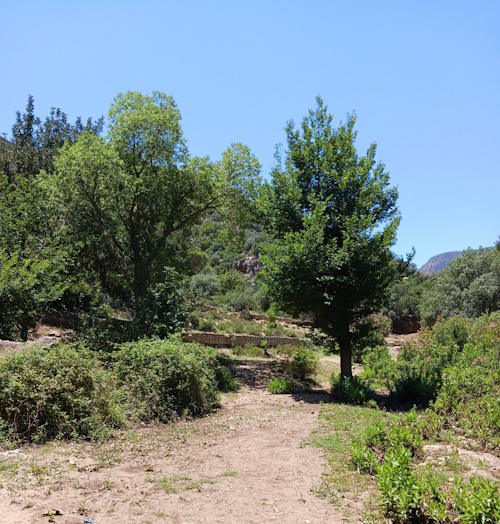
REFDORSALE
Characterization of past and present landscapes and terroirs in the Central Tunisian Dorsal using a calibration of vegetation, pollen and non-pollen palynomorphs
Scientific responsibility :
- Vincent Lebreton
- Yannick Miras
Methodological axes :
Thematic fields :
Disciplinary sectors :
Partnership :
Funding :
- DIM PAMIR
Project ID : IDF-DIM-PAMIR-2023-10-008
Summary :
The Mediterranean forests of the Tunisian Dorsal were attractive territories for prehistoric societies during the Holocene. Today’s landscapes are original, combining traditional “decheras” (small terraced gardens), new villages, “huertas” (irrigated plains with intensive gardening and/or fruit growing) and small irrigated areas, pine forests and matorrals, olive and carob park forests and pastoral grasslands. However, the chronology and the successive steps in which these high heritage value landscapes have been established are still little studied, particularly using botanical and archaeobotanical methods.
The aim of the internship is to study the pollen and non-pollen palynomorph (NPP) records of modern samples taken from the Aïn Boussaadia and Aïn Bez wetlands in the Central Tunisian Dorsal (as part of the PHC Utique DYP-AQUA 2022-2024), which have been the subject of a systematic botanical survey. To that end, the trainee will process a variety of soil samples, roots, and faeces from wild animals (jackal, wild boar) and domestic animals (goat, sheep, cow). He/she will count and determine pollen grains and NPPs. He/she will discuss the pollen and NPP spectra, in relation to the botanical surveys and the nature of the samples. Finally, an initial attempt will be made to transfer modern analogues to samples from a Holocene palaeolacustrine sequence collected near the Neolithic and Antique archaeological sites of Hanchir Bez, with a view to identifying taxa associated with variations in the plant landscape and the practices of human societies. In terms of training, the combination of pollen and NPP analyses aims to create a first modern reference system for mid-mountain areas, complementing the reference system initiated in the steppe environments of Central Tunisia.
The aim of the internship is to study the pollen and non-pollen palynomorph (NPP) records of modern samples taken from the Aïn Boussaadia and Aïn Bez wetlands in the Central Tunisian Dorsal (as part of the PHC Utique DYP-AQUA 2022-2024), which have been the subject of a systematic botanical survey. To that end, the trainee will process a variety of soil samples, roots, and faeces from wild animals (jackal, wild boar) and domestic animals (goat, sheep, cow). He/she will count and determine pollen grains and NPPs. He/she will discuss the pollen and NPP spectra, in relation to the botanical surveys and the nature of the samples. Finally, an initial attempt will be made to transfer modern analogues to samples from a Holocene palaeolacustrine sequence collected near the Neolithic and Antique archaeological sites of Hanchir Bez, with a view to identifying taxa associated with variations in the plant landscape and the practices of human societies. In terms of training, the combination of pollen and NPP analyses aims to create a first modern reference system for mid-mountain areas, complementing the reference system initiated in the steppe environments of Central Tunisia.
Intern: Rafaël Cabral

